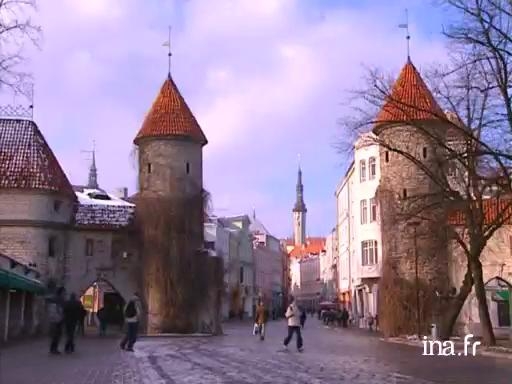Estonian identity

Information
Successively invaded during the past by the Danish, the Swedish, the Russians, the Soviets and the Germans, Estonians are afraid that by entering the European Union they will be lost in the crowd and will lose their cultural identity. Conversations in Tallinn with historian Marek Tamm, convinced that joining the union will, on the contrary, preserve the country's identity and with Arnold Ruutel, Estonia's president of the republic, regarding the ideas that a few intellectuals have regarding a radical change of identity.
Context
Estonia, a Nordic or Baltic country? Since the end of Soviet rule and new independence in 1991, the question of identity is at the heart of the national debate and feeds a few lively controversies. Traditionally associated to their Lithuanian and Latvian neighbours in the south to form the group of "Baltic countries", certain Estonians would rather claim an attachment to Finland and Sweden that border the country to the north and to the west.
Linguistic analysis would tend to agree with them as Estonian, like Finnish, belongs to a language family called "Finno-Ugric" and thus isn't Baltic from a linguistic point of view. On the other hand, Geography brings Estonia naturally closer to a "continental" culture rather than an "insular" one.
The question of national identity resurfaced at the moment of Estonia's entry into the European Union, the 1st of May 2004, and will be further fuelled at the time of the adoption of the euro: the original deadline for the 1st of January 2008 has been pushed back to an undetermined date. So for now the Estonian crown has still not finished soldering the identity of this young nation.




